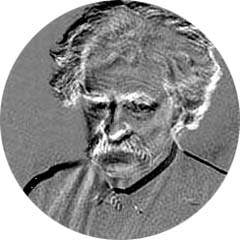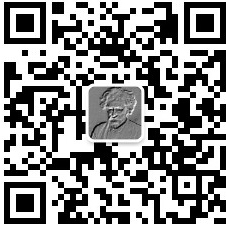OpenLayers 5 使用GeoJSON数据渲染热力图
GIS开发中会遇到需要使用热力图Heatmap的时候,openlayers5官方示例给出的是kml文件描述的热力图数据,开发中接触更多的还是GeoJSON格式,本文就使用GeoJSON格式来实现一个热力图。
地震热力图
一、实现思路
https://openlayers.org/en/latest/examples/heatmap-earthquakes.html
官方例子是从一个kml文件解析出生成的热力图,那么我们先分析一下生成一个热力图需要哪些数据:
地点
坐标
震级
基本上我们有了这三个数据就可以描述一个地点的地震情况了。
接下来我们看一下官方例子里使用了哪些技术,核心代码:
//前面省略了import语句等,详见官方的Demo
var vector = new HeatmapLayer({
source: new VectorSource({
url: ‘data/kml/2012_Earthquakes_Mag5.kml’,
format: new KML({
extractStyles: false
})
}),
blur: parseInt(blur.value, 10),
radius: parseInt(radius.value, 10)
});
vector.getSource().on('addfeature', function(event) {
var name = event.feature.get('name');
var magnitude = parseFloat(name.substr(2));
event.feature.set('weight', magnitude - 5);
});
openlayers5有一个 ol/layer/heatmap 类,用来渲染热力图,那么稍微研究一下初始化该类型对象的代码:
var vector = new HeatmapLayer({
source: new VectorSource({
url: ‘data/kml/2012_Earthquakes_Mag5.kml’,
//实际上我们只需要把这里的source对象换成GeoJSON对象就可以使用GeoJSON描述的数据源了
format: new KML({
extractStyles: false
})
}),
blur: parseInt(blur.value, 10),
radius: parseInt(radius.value, 10)
});
可以看到初始化source的时候,format初始化为一个KML对象,那么我们一会试试把它换成GeoJSON对象。
下面一段代码是在这个热力图图层添加要素的时候触发的addfeatrue事件上面绑定一个回调函数,是做什么的呢?我们先看一下kml文件,重点关注Placemark字段:
<Placemark id="2012 Jan 15 13:40:16.40 UTC">
<name>M 5.9 - 2012 Jan 15, SOUTH SHETLAND ISLANDS</name>
<magnitude>5.9</magnitude>
<Point>
<coordinates>-56.072,-60.975,0</coordinates>
</Point>
</Placemark>
然后对照回调函数的代码看一下:
vector.getSource().on(‘addfeature’, function(event) {
//从name字段取得字符串: M 5.9 - 2012 Jan 15, SOUTH SHETLAND ISLANDS
var name = event.feature.get(‘name’);
//从子串中取得浮点数:5.9
var magnitude = parseFloat(name.substr(2));
//设定feature的权重weight为:5.9-5=0.9
event.feature.set(‘weight’, magnitude - 5);
});
分析完这一段代码之后,我们就可以自己动手了。
二、实现步骤
首先我们得搞一些GeoJSON描述的地震数据:
https://earthquake.usgs.gov/earthquakes/feed/v1.0/summary/all_month.geojson
为了调试方便我下载到了本地保存为earthquake.json。
首先改造heatmap初始化过程:
let heatMapLayer = new HeatmapLayer({
source: new VectorSource({
//我们使用json数据
url: ‘./earthquake.json’,
format: new GeoJSON()
}),
//这里可以根据自己项目的实际,绑定页面的控件动态调整
blur: 5,
radius: 5
});
然后我们看一下GeoJSON格式,每一个地震点的信息就是这样来表示的:
{
“type”: “Feature”,
“properties”: {
“mag”: 1.36,
“place”: “6km W of Cobb, CA”,
“time”: 1554968762010,
“updated”: 1554969663578,
“tz”: -480,
“url”: “https://earthquake.usgs.gov/earthquakes/eventpage/nc73163930”,
“detail”: “https://earthquake.usgs.gov/earthquakes/feed/v1.0/detail/nc73163930.geojson”,
“felt”: null,
“cdi”: null,
“mmi”: null,
“alert”: null,
“status”: “automatic”,
“tsunami”: 0,
“sig”: 28,
“net”: “nc”,
“code”: “73163930”,
“ids”: “,nc73163930,”,
“sources”: “,nc,”,
“types”: “,geoserve,nearby-cities,origin,phase-data,scitech-link,”,
“nst”: 25,
“dmin”: 0.01216,
“rms”: 0.04,
“gap”: 32,
“magType”: “md”,
“type”: “earthquake”,
“title”: “M 1.4 - 6km W of Cobb, CA”
},
“geometry”: {
“type”: “Point”,
“coordinates”: [-122.7946701, 38.8251648, 2.4]
},
“id”: “nc73163930”
},
……
显而易见,mag字段就是地震的震级,是我们需要的,place是发生的地点,geometry的信息就是这个feature的形态。
地点√
坐标√
震级√
似乎万事俱备了。
最后我们需要实现的就是回调函数:
heatMapLayer.getSource().on(‘addfeature’, function(event) {
var place = event.feature.get(‘place’);
var magnitude = event.feature.get(‘mag’);
//设定权重减去的数字是为了过滤地震等级,比如只想显示3级以上地震,那就减去3
event.feature.set(‘weight’, magnitude-3);
});
效果图:




 个人中心
个人中心 退出
退出




 分类导航
分类导航